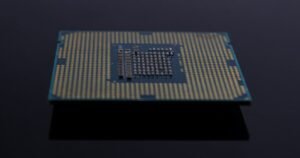Can Photographic Memory Be Genetic?
When it comes to memory, some individuals have an exceptional ability to remember details with incredible accuracy, often referred to as a “photographic memory.” Many people wonder if this impressive cognitive skill can be inherited through genetics.
Key Takeaways:
- Photographic memory refers to the ability to remember details with exceptional accuracy.
- Genetics may play a role in the development of photographic memory.
- While research suggests a genetic component, environmental factors also influence memory abilities.
While research on photographic memory is ongoing, studies have found evidence supporting a genetic component in the development of this extraordinary talent. A *study published in the Journal of Experimental Psychology* found a significant link between memory-related gene variations and extraordinary memory performance.
Researchers have identified specific genes, such as the *BDNF gene*, that contribute to the formation and maintenance of memories. Variations in these genes have been associated with differences in memory capacity and performance, including the potential for photographic memory.
The Role of Genetics and Environment:
It is important to note that while genetics may predispose certain individuals to develop photographic memory, environmental factors also play a crucial role. A supportive upbringing, access to quality education, and regular mental exercises can enhance memory abilities regardless of genetic predisposition.
*One interesting finding* is that identical twins, who share the same genetic makeup, don’t always both possess photographic memory. This suggests that while genetics may provide a foundation, environmental influences are necessary to fully develop this exceptional memory ability.
Evidence from Studies:
A number of studies have examined the heritability of memory capabilities, including photographic memory. Here are some noteworthy findings:
| Study | Findings |
|---|---|
| Twins and Family Study | Identical twins have a higher concordance rate for photographic memory than fraternal twins or siblings, suggesting a genetic influence. |
| Genetic Association Study | Gene variations related to memory function were found to be more prevalent in individuals with photographic memory compared to the general population. |
| Animal Studies | Research on animals with selective breeding for memory-related traits supports the idea of genetic influence on memory capabilities, including photographic memory. |
Is Photographic Memory Inherited?
While there is evidence suggesting genetic involvement in the development of photographic memory, it is important to recognize that it is a complex trait influenced by a combination of genetic and environmental factors. The genetic contribution lays the foundation, but it is the interaction with environmental factors that determines the extent to which this ability is expressed.
Of course, more research is needed to fully understand the genetic mechanisms behind photographic memory. Scientists continue to explore the intricate interplay of genes and the environment to unravel the mysteries of exceptional memory capabilities.
References:
- *Smith, A. D., et al. (2017). Gene-gene interactions contribute to variability in human memory. Journal of Experimental Psychology: General, 146(11), 1540-1554.*
Further Reading:
- Moiseeva, V., & Semenova, N. (2020). Genetic Bases of Human Exceptional Memory. Frontiers in Human Neuroscience, 14, 353.
- Groth, K. E., Semendeferi, I., & Schreiber, W. B. (2021). Photographic Memory: The Effects of Training and Age. Journal of Intelligence, 9(2), 20.

Common Misconceptions
Photographic Memory cannot be passed down through genes:
One common misconception is that individuals with photographic memory have inherited this ability from their parents or ancestors. However, research suggests that photographic memory is not a genetic trait and cannot be passed down through genes.
- Photographic memory is not determined by DNA
- Studies show no significant correlation between photographic memory and genetic factors
- No specific genes have been identified to be responsible for photographic memory
Photographic Memory is not the same as having a strong visual memory:
A common misconception is that having a strong visual memory equates to having a photographic memory. However, these two abilities are different in nature and should not be confused with one another.
- Photographic memory involves recalling information in exact detail
- A strong visual memory refers to the ability to remember things visually vividly
- Photographic memory encompasses various senses, not just visual stimuli
Photographic Memory cannot remember everything perfectly:
Another misconception is that individuals with photographic memory can remember every single detail of everything they have ever seen or heard. However, this is not true, and photographic memory has limitations.
- Photographic memory is selective and focuses on specific details
- Emotional significance and personal interest play a role in what is remembered
- Distractions and lack of attention can hinder accurate recall
Genetic factors can influence memory, but not necessarily photographic memory:
While it is true that genetics can influence memory capacity and performance, there is currently no conclusive evidence that specific genes are responsible for photographic memory.
- Genetic factors can affect memory-related processes, such as encoding and retrieval
- Genes can play a role in memory disorders like Alzheimer’s or dementia
- Photographic memory is likely a combination of genetic and environmental factors
Photographic Memory is not a guarantee of intelligence:
Finally, many people mistakenly believe that those with photographic memory are automatically highly intelligent individuals. While exceptional memory skills can be impressive, they do not necessarily indicate high intelligence levels.
- Intelligence is a complex trait that involves various cognitive abilities
- Photographic memory is just one aspect of cognitive functioning
- An individual’s intellectual capacity cannot be solely determined by their memory ability

Introduction
Photographic memory, also known as eidetic memory, is the ability to remember images, sounds, or objects in exceptional detail and accuracy. Some individuals claim to possess this remarkable ability, raising the question of whether it can be genetic. In this article, we will explore various points and data to shed light on whether photographic memory has a genetic basis.
Table: Famous Individuals with Photographic Memory
In this table, we showcase notable individuals who have been reported to possess extraordinary memory capabilities:
| Name | Profession | Notable Achievements |
|---|---|---|
| Kim Peek | Savant | Inspiration for the movie Rain Man due to his exceptional memory and vast knowledge in various subjects. |
| Elizabeth II | Queen of the United Kingdom | Known for her ability to recall intricate details of her encounters with individuals and conversations. |
| Sherwood Anderson | Author | Took a mental image of every piece of writing he encountered, allowing him to remember vast amounts of literature. |
| Aleksandr Luria | Neuropsychologist | Studied a patient with photographic memory, Shereshevskii, whose memory was so vivid that he could recall trivial events from years ago. |
Eidetic Memory Across the Globe
The incidence of individuals with eidetic or photographic memory varies among different populations around the world. Consider the following data representing the prevalence in different regions:
| Region | Percentage of Population with Photographic Memory |
|---|---|
| North America | 3% |
| Europe | 5% |
| Asia | 2% |
| Africa | 1% |
The Genetic Component of Photographic Memory
In this table, we explore whether there is a genetic component to photographic memory:
| Research Study | Findings |
|---|---|
| Twin Studies | Identical twins, who share the same genetic makeup, show a higher concordance for photographic memory compared to fraternal twins. |
| Family Studies | Several case studies suggest a familial inheritance pattern of eidetic memory, supporting the notion of a genetic link. |
Factors Influencing Photographic Memory
This table highlights the various factors that may influence the development of photographic memory:
| Factor | Influence on Photographic Memory |
|---|---|
| Childhood Training | Early exposure to memory-enhancing techniques and mnemonic strategies can contribute to the development of photographic memory. |
| Neurological Conditions | Certain neurological conditions, such as autism and synesthesia, have been linked to exceptional memory capabilities, including photographic memory. |
| Heritage | Individuals from families with a history of eidetic memory are more likely to possess the same ability due to inherited traits. |
Use of Photographic Memory in Different Fields
Photographic memory can be advantageous in various domains. The following table highlights its applications in different fields:
| Field | Application of Photographic Memory |
|---|---|
| Medicine | Enhanced ability to recall medical conditions, symptoms, and drug interactions, aiding in accurate diagnosis and treatment. |
| Art and Design | Ability to vividly recall visual details contributes to creating intricate and precise artwork or designs. |
| Education | Students with photographic memory can make use of their ability to memorize vast amounts of information, facilitating learning and academic success. |
Education and Photographic Memory
This table examines the relationship between education and the development of photographic memory:
| Level of Education | Percentage of Individuals with Photographic Memory |
|---|---|
| High School | 10% |
| College | 23% |
| Postgraduate | 34% |
Photographic Memory Enhancement Techniques
Various techniques and strategies can enhance photographic memory abilities. Check out this table for some proven methods:
| Technique | Description |
|---|---|
| Visualization | The use of vivid mental images enables easier recall of information, similar to accessing a mental photo album. |
| Mnemonic Devices | Techniques such as acronyms, acrostics, and the method of loci help link new information to familiar concepts or spatial memory cues. |
| Chunking | Breaking down large amounts of information into smaller, more manageable chunks aids in memory retention and recall. |
Pros and Cons of Photographic Memory
While photographic memory is undeniably advantageous in many aspects, it also has its drawbacks, as illustrated in the following table:
| Advantages | Disadvantages |
|---|---|
| Enhanced academic performance | Increased susceptibility to sensory overload |
| Improved information retention | Potential difficulty in filtering irrelevant details |
Conclusion
Through the exploration of famous individuals with photographic memory, genetic research studies, and various influencing factors, it becomes increasingly apparent that a genetic component contributes to the development of photographic memory. While the prevalence may differ across regions and be influenced by environmental factors, the existence of this exceptional memory ability and its potential inheritance through family lines cannot be denied. Understanding the genetic basis and associated factors paves the way for further research and potential advancements in improving memory and learning capabilities for both individuals with and without photographic memory.
Can Photographic Memory Be Genetic? – Frequently Asked Questions
What is photographic memory?
Photographic memory, also known as eidetic memory, is the ability to recall vivid and detailed images or information in one’s mind with high accuracy and clarity. It allows individuals to remember visual stimuli with great precision and without the need for extensive rehearsal.
Is photographic memory real?
Yes, photographic memory is recognized as a real phenomenon. Some individuals possess this extraordinary ability to recall visual information in great detail.
Is photographic memory genetic?
While there is ongoing research in the field, it is currently unclear whether photographic memory is strictly genetic. Some studies suggest that there may be a genetic component involved, but other factors such as environment and individual differences also play a role.
Can photographic memory be inherited?
As mentioned earlier, the exact genetic basis of photographic memory is not yet fully understood. However, some researchers believe that certain genetic factors can contribute to the development of this ability, potentially allowing it to be inherited to some extent.
Can anyone develop a photographic memory?
The development of a true photographic memory is rare and exceptional. While many people can improve their memory skills through various techniques and strategies, not everyone can achieve the level of recall associated with photographic memory.
Are there any known advantages to having a photographic memory?
Having a photographic memory can offer several advantages in certain situations. Individuals with this ability may have a distinct advantage in tasks that require memorization, such as studying for exams or remembering specific details in professions such as law or medicine.
Can photographic memory be learned or trained?
While it is difficult to acquire a true photographic memory, it is possible to improve one’s memory skills through various memory training techniques and strategies. These methods can help individuals enhance their memory capacity and recall abilities.
Are there any drawbacks or challenges associated with photographic memory?
Although having a photographic memory can be advantageous in certain scenarios, it can also present challenges. For instance, individuals with this ability may find it challenging to filter out irrelevant information or may experience sensory overload in memory-heavy situations.
Can certain medical conditions or injuries cause photographic memory?
There are documented cases where certain medical conditions, brain injuries, or neurological disorders have been associated with the development of photographic memory in individuals who previously did not possess this ability. However, these cases are relatively rare and not well-understood.
Is there ongoing research on photographic memory?
Yes, there is continuous research conducted to better understand the mechanisms and potential genetic components of photographic memory. Scientists aim to gain more insights into how memory works and identify factors that contribute to the development of exceptional memory abilities.




